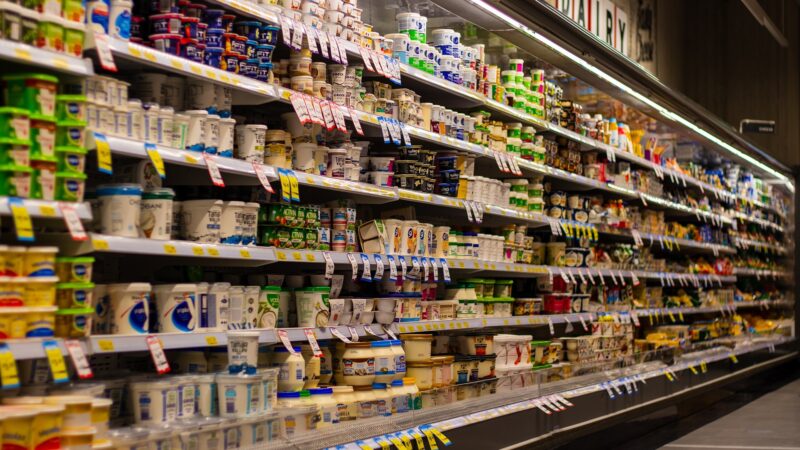Ivey signs grocery tax reduction into law
MONTGOMERY, Ala. (AP) — Alabama Gov. Kay Ivey on Thursday signed legislation to reduce Alabama’s sales tax on groceries.
The tax cut will reduce the state’s 4% tax on groceries to 3% on Sept. 1. The tax will drop to 2% on Sept. 1, 2024, but only if tax collections to the Education Trust Fund rise at least 3.5% to offset the loss. If that growth requirement isn’t met, the tax would be reduced to 2% in the next year that the growth requirement is satisfied.
“As Alabamians and Americans alike are grappling with tighter times, I am hopeful that this decision by the Legislature to slightly reduce the sales tax on certain food items will be truly felt by Alabama families,” Ivey said in a statement.
Alabama is one of only three states that tax groceries at the same rate as other purchases. Advocates had long argued that taxing food at such a rate placed an unfair burden on families in the poor Southern state, where 16% of the people live in poverty and the median household income hovers around $54,000.
Some lawmakers had tried unsuccessfully for decades to remove the tax. The measure gained broad bipartisan support this year against a backdrop of soaring food prices and a hefty state budget surplus.
“This is welcome news for Alabamians who are struggling to make ends meet and working hard to keep food on the table. And this is meaningful progress toward a more just and equitable tax system for our state,” Chris Sanders, a spokesman for Alabama Arise, an advocacy group for low-income families.
Sanders said the “state grocery tax is a cruel tax on survival.” He said Alabama Arise remains committed to the goal of eliminating it entirely.
Legislative efforts to remove the full 4% tax faltered because of concerns about the loss of funding to the state education budget and a lack of political will to raise other taxes to offset the loss. The current 4% tax provides more than $600 million annually to the state for its Education Trust Fund, which currently totals a little more than $8 billion.
Lawmakers are creating a study commission to explore the possibility of eventually removing all of the tax.
US military used laser to take down Border Protection drone, lawmakers say
The U.S. military used a laser to shoot down a Customs and Border Protection drone, members of Congress said Thursday, and the Federal Aviation Administration responded by closing more airspace near El Paso, Texas.
Deadline looms as Anthropic rejects Pentagon demands it remove AI safeguards
The Defense Department has been feuding with Anthropic over military uses of its artificial intelligence tools. At stake are hundreds of millions of dollars in contracts and access to some of the most advanced AI on the planet.
Pakistan’s defense minister says that there is now ‘open war’ with Afghanistan after latest strikes
Pakistan's defense minister said that his country ran out of "patience" and considers that there is now an "open war" with Afghanistan, after both countries launched strikes following an Afghan cross-border attack.
Hillary Clinton calls House Oversight questioning ‘repetitive’ in 6 hour deposition
In more than seven hours behind closed doors, former Secretary of State Hillary Clinton answered questions from the House Oversight Committee as it investigates Jeffrey Epstein.
Chicagoans pay respects to Jesse Jackson as cross-country memorial services begin
Memorial services for the Rev. Jesse Jackson Sr. to honor his long civil rights legacy begin in Chicago. Events will also take place in Washington, D.C., and South Carolina, where he was born and began his activism.
In reversal, Warner Bros. jilts Netflix for Paramount
Warner Bros. says Paramount's sweetened bid to buy the whole company is "superior" to an $83 billion deal it struck with Netflix for just its streaming services, studios, and intellectual property.







